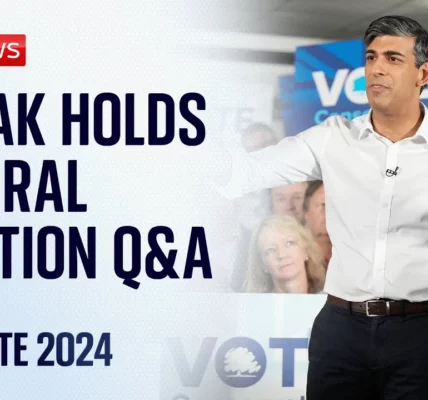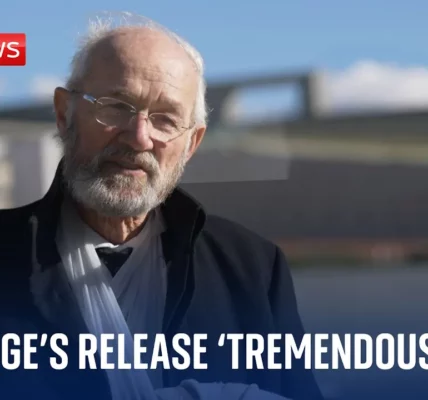Recent Conflicts and Political Dynamics: Lebanon, Gaza, and the US Elections

This article delves into the recent attacks on UN peacekeepers in Lebanon, the escalating situation in Gaza, and the shifting political sentiments among Black voters in the United States as the presidential elections approach. Additionally, we explore the humanitarian crisis emerging in Sudan as famine looms over its population.
Introduction to Current Global Tensions
In a world increasingly fraught with conflict, the recent events in Lebanon and Gaza highlight the complex interplay of violence, political maneuvering, and humanitarian crises. As Israel faces accusations of deliberate attacks, the humanitarian situation worsens in Gaza, where aid is being obstructed. Meanwhile, the political landscape in the United States is evolving, especially among Black voters who are reassessing their support for current leadership. This article aims to provide a detailed overview of these interconnected issues, shedding light on their implications for international relations and domestic politics.
Attacks on UN Peacekeepers in Lebanon
Overview of Recent Incidents
Lebanon has seen a troubling escalation in violence, particularly against UN peacekeepers. On a day marked by tragedy, an airstrike resulted in the deaths of a city mayor and 15 others, raising serious concerns about Israel’s military actions in the region. The Lebanese Prime Minister has accused Israel of deliberately targeting a council meeting, intensifying calls for accountability.
International Reactions
The UK government has signaled a potential shift in its stance towards Israel, considering sanctions against Israeli ministers involved in exacerbating the situation in Gaza and the West Bank. This reflects a growing sentiment among Western nations to hold Israel accountable for its actions, particularly in light of humanitarian concerns.
The Gaza Conflict: A Humanitarian Crisis
The Impact of Violence on Civilians
The ongoing conflict in Gaza has resulted in a dire humanitarian situation. Reports indicate that the death toll has surpassed 42,000, with access to essential services becoming increasingly restricted. The UK Prime Minister has emphasized the need for Israel to allow humanitarian aid into Gaza, yet the reality on the ground remains grim.
Challenges in Aid Delivery
- Restricted access for humanitarian organizations.
- Increased civilian casualties amidst military operations.
- Escalating tensions between Israel and militant groups, complicating ceasefire negotiations.
Political Dynamics in the United States
The Battle for the Black Vote
As the US presidential election approaches, Black voters in states like Michigan are re-evaluating their political affiliations. Vice President Kamala Harris is facing challenges in securing support, especially among younger Black men who feel disillusioned by the Democratic Party. This shift in sentiment could have significant implications for the election outcome.
Key Factors Influencing Voter Sentiment
- Economic conditions: Many voters cite stability and economic improvement during the Trump administration as a reason for their support.
- Perceptions of political leadership: Some voters express frustration with the Democratic Party’s engagement with Black communities.
- Identity politics: The expectation that Black voters will uniformly support Black candidates is being challenged.
The Humanitarian Crisis in Sudan
Famine and Displacement
In Sudan, the ongoing conflict has pushed millions toward famine, particularly in the Darfur region. The situation is exacerbated by the influx of internally displaced persons who have lost their homes and livelihoods. Humanitarian organizations are struggling to provide adequate support amid escalating violence.
Efforts to Address the Crisis
International agencies are mobilizing to deliver aid, but challenges remain due to the unstable security situation. The need for coordinated efforts to address food shortages and provide medical care is urgent as the situation continues to deteriorate.
Conclusion
The interconnected crises in Lebanon, Gaza, and Sudan reflect a broader trend of instability affecting many regions worldwide. As political dynamics shift in the United States, particularly among Black voters, the implications for the upcoming presidential election are significant. It is crucial for international communities to address these humanitarian crises with urgency and compassion. We encourage readers to stay informed and advocate for peaceful resolutions and humanitarian support in these affected areas.
For more insights on related topics, explore our articles on the crisis in Lebanon and the humanitarian situation in Gaza.
“`




